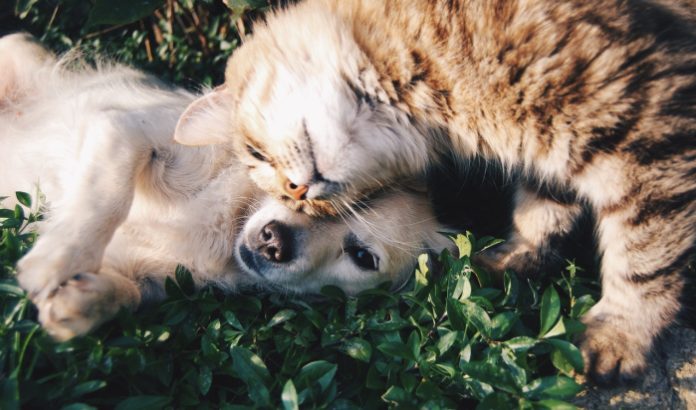The pet you have can say a lot about you. Cats and dogs, for example, can resemble you and your lifestyle in many ways. Dogs are generally social creatures, overly-friendly and live each day to spend time with their (human) family in their home. Whereas cats are independent, prefer their own company and love to go out and explore, miles on end. This isn’t precisely Type A vs Type B, but you are bound to match the personality of one more than the other.
A Day in the Life of Your New Pet
Chalk and cheese: as different as the two lovable creatures are, that’s not to say the two pets don’t share characteristics. After all, dogs love to go on walks to explore just as much as cats are known to do. The difference is that cats are wise and independent and will do this on their own with vigilance of danger, whereas dogs need you to guide them. This is a simple-but-important example that backs up the findings of the research into how your new pet may influence how you spend your time. The study proves how dog owners differ from cat owners, and it is something that you need to consider before getting either pet.
Cats
Your cat may leave the house in the morning at the same time as you do, and is trusted to use their cat flap as they please. After covering more walking miles than you probably do, they will return for their food at a similar time as you return home. Cats can be very affectionate when a bond has been built with their owner, and younger cats can be quite playful. We hope your new cat will interact with you, but don’t be offended if they find a quiet room in the evenings or a peaceful spot on the other sofa to relax. Cats, after all, love their own company.
Dogs
A nice morning walk aside, the rest of the day can be quite sad for your dog if nobody is around during the working hours of the day. The reality is that they will sit around waiting for you to come home. They will reluctantly try to use this time to sleep, and luckily older dogs will be glad of this opportunity. Upon your arrival home, they will look to spend every minute possible with you. They will want to play, fight and cuddle. This can take up a lot of your spare time, not to mention their evening walk.
The characteristics and behaviours of these two animals affect your time in different ways. Although going off on the differences of cats vs. dogs is a no-brainer in facilitating your pet choice, you should also think deeper and consider the characteristics of cat owners and dog owners…
Choosing Your Pet
Consider how much time you will need to dedicate to your new pet. If you have house chores and children to care for after a day’s hard work, then taking a dog for an evening walk may be more challenging. Cats, on the other hand, do not need this time. Also consider the impact on other members of the family. Do you have young children? Is your family active? Do you value your “me time” at home more than having to walk a new pet? The answers will determine whether a dog is a suitable companion. In comparison, if you are time-conscious and like your independence, then a cat may be a more suitable companion.
Cat Owners
Generally, cat owners are independent, intelligent and mindful people. They tend to prefer their own space and are more prone to live alone and enjoy reading. Consider that they have more spare time than dog owners, due to cats not requiring as much of their attention as dogs do.
Dog Owners
Does this sound like you? An extrovert, very playful, someone who would celebrate their pet’s birthday, considers them part of the family and lives in a family home? Dog owners may seek comfort from their pet as much as your dog does with you. Considering your pet choice: did you know that dog owners are happier than cat owners?
This isn’t to say that if you live alone then get a cat, not a dog… or get a dog if you have children. You may match the characteristics of one but prefer to be the other, that’s fine. This is merely food for thought, as these traits and pet choice matches are not a coincidence. These are the patterns based on your personality and lifestyles and as such, they are important factors to be taken into account when you choose your pet.
There are, however, plenty of other considerations you need to think about before you go through with the realities of adopting a pet — regardless of whether you have made your pet choice. Let’s take you through some key considerations…
Considerations to Keep in Mind When Adopting a Pet
Adopting a new pet is a commitment that you need to be ready for. Dogs generally live between 10-13 years, and cats: 13-16 years. The last thing anyone involved wants after adopting a pet is for the owner to realise that they are not ready for the responsibilities, they made the wrong pet choice, or they didn’t consider how having a pet would influence their time…
Do you live alone or with your family?
Studies show that people with families are much more likely to own a dog rather than a cat. This is by choice, not a coincidence. Perhaps this is because dogs are more social and child-friendly than cats. Dogs can be the best of friends for children. Cats, on the other hand, are less likely to be able to handle the giddiness and playfulness of children.
Do you travel a lot?
If you are a cat owner, then all you need to arrange is a trusted neighbour or family member to pop in each day to refill the food and water bowls. A dog, however, requires many more arrangements, even for an individual heading off to work each day outside the home. Leaving for longer periods can be quite traumatic for them… not to mention for you too!
Do you already have a pet?
It is important to consider how your pet at home will react to a new family member. Dogs generally adapt to other dogs quite well, perhaps with initial complications but over time this should be fine. They are likely to form a strong bond or be friendly with each other at the very least. The same cannot generally be said about cats with other cats, but that’s not to say it can’t happen this way. The reality is that cats are a lot more territorial, and seeing as how they prefer their own space and company, suddenly having to share it is likely to distress them. Mixing pets is a whole other matter; welcoming a dog into a cat’s home or vice versa. You may find that dogs are happy to adjust in comparison to cats, and perhaps unexpectedly, it’s your cat that may struggle with such change and look to be the dominant animal in your household.
Do you have children?
If you have children, then you need to consider how they will react to either a new cat or dog. Have you properly vetted your new pet to ensure that they are suited to a home with children? Introducing a new pet to an existing pet, as discussed, can be a tricky process. This is simple in comparison to introducing pets and children.
Do you have spare time each day?
Some days you may not spend any time with your cat, so a quick 30 seconds to leave some food out is sometimes all it takes to be a cat owner. Dog owners, however, should have 15-30 minutes free for an evening walk, ideally finding the time each morning to do this also. That’s not to mention the extra time in the house that your dog will likely want to share with you. You’re aware of the term “puppy dog eyes”, right? Try to turn your dog away when they want to play fetch or play-fight. Cats, on the other hand, will generally interact with you less.
Remember to consider all of the above because your new pet, and likewise your pet choice will influence your lifestyle and how you spend your time for days, weeks and years to come!
Find a Home-Based Business to Start-Up >>> Hundreds of Business Listings.

















































